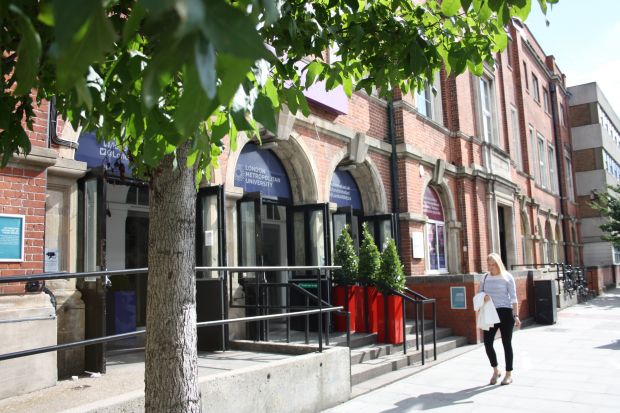A London university is seeking to hire about 80 black and ethnic minority staff as part of a £15 million drive to tackle racial inequality.
“This is more than blue-sky thinking. We have to deliver change; it is long overdue,” said Zainab Khan, pro vice-chancellor for learning and teaching at London Metropolitan University, which has made the proposal under its new race equity strategic plan.
The £15 million fund will be used “principally to diversify the academic base”, said Dr Khan, who led the drafting of the strategy. Black and ethnic minority staff remain less likely to be appointed to, progress to or occupy senior roles across UK higher education.
The recruitment drive will run across all of London Met’s schools, with the aim of “delivering a teaching base which reflects our students”, said Dr Khan, director of the university’s Centre for Equity and Inclusion.
“We need to improve representation across the academic pipeline, but we’re going to start off with early career academics,” she said. “It will include postdoctoral fellowships, lecturers and senior lecturers, but it will also go to the other end of the spectrum as well to professors.” Dr Khan stressed that this did not mean that London Met would stop hiring white staff.
The strategy also aims to tackle the attainment gap affecting ethnic minority students. Across the UK as a whole, only 57 per cent of black students achieve first-class or 2:1 degrees, compared with 81 per cent of white students.
Almost 70 per cent of London Met’s students are from black or minority backgrounds, with the vast majority coming from the surrounding local area. “So while every university has got this challenge, for us the challenge is even greater because we’re talking about the vast majority of our students,” Dr Khan said.
The strategy says London Met will reduce the degree awarding gap to 10 per cent by 2025, as well as eliminate the disparity in non-continuation between white students and black and minority students in the same period.
The strategy also includes a proposal to have “embedded critical race theory and decolonial discourse within all disciplines by September 2022”.
“Whether you’re a science student or a law student, you’ll have an opportunity to look at the way in which the current social construct of race operates within a particular industry or field of enquiry,” Dr Khan said. “This is in everyone’s best interest, including white students, who benefit enormously from being able to learn about the contributions of disparate communities in the UK and understanding the role of the UK in a global context.”
The strategy will ensure that staff leading equality-focused project work are supported and receive workload allocation recognition for their labour. The university will also deliver privilege and anti-racism training to all staff within the next calendar year and will require all senior managers to undertake professional development activities in race awareness.
Dr Khan hoped that London Met’s work would inspire change across the sector. “Every university is facing the same problem, and it would be great to see universities working much more collaboratively in this space. We’ve got a long way to go.”
Register to continue
Why register?
- Registration is free and only takes a moment
- Once registered, you can read 3 articles a month
- Sign up for our newsletter
Subscribe
Or subscribe for unlimited access to:
- Unlimited access to news, views, insights & reviews
- Digital editions
- Digital access to THE’s university and college rankings analysis
Already registered or a current subscriber? Login








